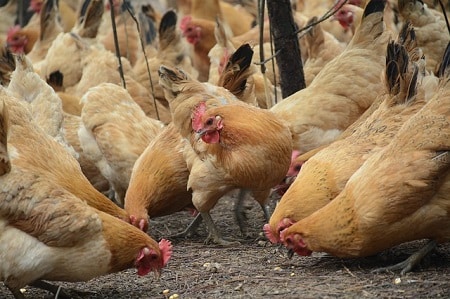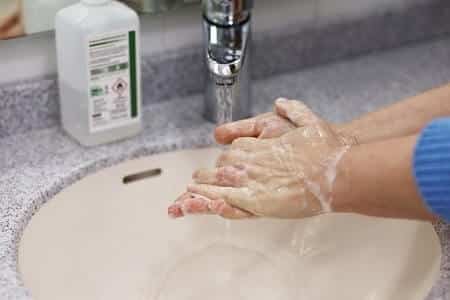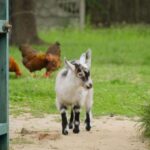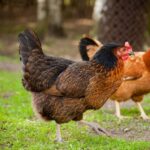The coronavirus is now a global pandemic. With more than 145,000 people confirmed as infected at the time of writing this and the daily lives of millions of people disrupted, you’re right to be concerned about your pets.
Looking out for yourself and minimizing your exposure is one thing. If you have pets, such as backyard chickens, that opens up a lot more questions and possibilities.
Here’s what we currently know about whether or not backyard chickens and other pets can contract the virus, and if they can pass it on to humans.
Can chickens get coronavirus? There have been no known cases of chickens with the virus to date. It’s still not known if chickens can get coronavirus, and there’s only been one case to date of a pet with the disease.
Table of Contents
Can Humans Catch Coronavirus From Pets (And Vice Versa)?
On the 5th March, The Guardian published an article detailing how a Pomeranian dog had tested positive for the SARS-CoV-2.
There’s more to this story than you might think though. The World Health Organization (WHO), have been investigating the case, and it’s not as simple as assuming the dog came into contact with an infected person and picked up the virus.
The dog wasn’t showing any symptoms of the virus, and the test picked up a “low-level infection”.
The WHO is still not sure if domestic pets, such as cats and dogs can actually contract the virus from infected owners. They think the low-level reading might be due to the dog recently coming into contact with the virus.
So, as for right now, it’s not known that pets can get the virus from us or vice versa. It’s still important that you take every measure to ensure you’re minimizing the risk you for and your pets though.
Coronaviruses in Poultry

It’s important to be aware of the different strains of coronavirus.
Coronaviruses are not new to backyard chickens and the poultry industry. Chickens have had diseases with similar symptoms like infectious bronchitis virus IBV, and avian flu for years. There are some other strains that affect birds, like turkeys and pheasants too.
The strain we’re currently dealing with is severe acute respiratory syndrome coronavirus 2 (SARS-CoV-2), also called COVID-19.
This is a different type of coronavirus than the diseases that have affected the poultry industry previously.
Each strain of coronavirus affects different species in different ways, which is why there is such little information on how chickens will be affected, if at all.
Is It Safe to Buy New Chicks?
I don’t see any reason not to buy new chicks at the moment if that’s what you were planning on doing.
If you know that no one in your family has the virus and you’re doing everything you can to minimize your risk, there is no added risk by hatching or buying chicks.
It’s always good practice to buy from an NPIP certified breeder, but now it’s more important than ever.
The National Poultry Improvement Plan is a program poultry breeders and sellers can opt into. This demonstrates they test their flock for a wide range of diseases and use best practices to breed and house their birds.
Use Good Hygiene (Biosecurity) Practices Around Your Chickens

According to the latest from the Centers for Disease Control and Prevention, there is currently no vaccine to prevent contracting the virus, so good hygiene and minimizing your risk is all you can do.
If you’re a backyard flock owner you should already be familiar with good hygiene practices around your chickens.
Poultry carries two dangerous bacterias that already affect millions of people across the U.S. every year, campylobacter and salmonella.
If you’re not already, always wash your hands thoroughly with soap before and after handling your chickens and any surfaces they may have come into contact with.
Ideally, you should have a pair of shoes that you only wear when entering their coop and run. Chicken feces is one of the ways these bacterias travel from their living space to further away after someone walks in poop.
In Summary - Can Chickens Get Coronavirus?
That’s all we know for now about the risks associated with giving or receiving COVID-19. More developments seem to be coming to light daily, so this may change in the near future.
For now, all we can do as backyard chicken owners is maintain strict biosecurity measures and do everything we can to keep the risk to us and our pets to a minimum.
Resources
Coronavirus Disease: How to protect yourself - CDC.gov
Coronavirus and your pets - Sciencemag.org




